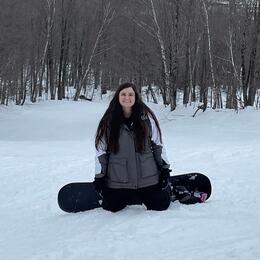Vermont’s next-door neighbor has taken a massive step in the right direction to protect pollinators, birds, and other wildlife. New York introduced a new bill to restrict the use of neonicotinoid pesticides in January of 2023. By June, it had passed both houses and was awaiting a signature from the governor to be officially signed into law. Finally, on December 22, 2023, Governor Kathy Hochul signed the Birds and Bees Protection Act.
Neonicotinoids (commonly called “neonics”) are the most widely used insecticide in the world, applied to agriculture, parks, golf courses, lawn and landscaping, and even pet collars. The most popular use is by coating seeds. These seeds are used prophylactically, meaning without prior evidence of pest presence and before less harmful alternatives have been attempted. The market is such that farmers are not given much of an option as to which seeds are accessible to them. Much of the time, the treated seeds are all that are available. There is no significant increase in crop yield or profit stemming from the use of neonics. Alternatively, there is significant harm done to the environment, wildlife, and human health. By prohibiting the extraneous use of neonicotinoid seed coatings on corn, soybean, and wheat seeds as well as non-agricultural lawn and garden applications, this law will cut 80-90% of neonicotinoids from seeping into the environment. These restrictions are extremely important because neonicotinoids are one of the most common pesticides, while also being one of the most harmful.
Neonics are both directly and indirectly harmful to birds. One neonicotinoid treated seed ingested by a songbird is enough to kill it. Further, toxins from treated seeds do not remain isolated to the seed when they are planted, 95% of the neonics on a treated seed leech into the groundwater and the other 5% become imbedded in every part of the plant, including the roots, the stems, the flowers, the nectar, the seeds, the fruit, the pollen, etc. Ingesting small amounts of neonics can emaciate birds, harm their abilities to reproduce, and disrupt migratory pathways. Insectivore birds, grassland birds, and seed eating birds are at a high risk of harm from neonics. In Vermont, neonics significantly threaten tree and barn swallows, bluebirds, flycatchers, vireos, purple martins, common nighthawks, bobolinks, meadowlarks, savannah sparrows, robins, blue jays, American crows, and more. The indirect harm comes from the neonics killing off birds’ food sources or poisoning the remaining available food and water sources, making the birds sick as well. In addition to birds, neonics harm fish, reptiles, frogs, birds, mammals, pollinators, and even earthworms.
In June 2022, a Biological Evaluation be the Environmental Protection Agency (EPA found the three most common neonics adversely affect up to 79% of wildlife species evaluated and up to 83% of critical habitats. Some examples the EPA gave of species that are harmed by these neonicotinoids are whooping cranes, northern long-eared bats, all 39 federally-endangered species of amphibians, rusty patched bumblebees, chinook salmon, and orcas.
In response to this bill being signed, Erin McGrath, the National Audubon Society’s Senior Policy Manager, said, “Over the last decade, neonics have come under increasing scrutiny because of their negative impacts on birds, pollinators, other wildlife, and people. Science has shown us that even low doses of neonics can prevent songbirds from orienting themselves for their migration, cause significant weight loss, and interfere with their reproductive success. Due to these impacts, the use of neonicotinoid insecticides should be greatly reduced to help reverse the steep declines observed in many bird populations. We thank Governor Hochul for taking swift action to curtail the unrestricted use of neonic pesticides and championing birds and the places they need to survive.”
Governor Hochul stated, “By signing the Birds and Bees Protection Act, New York is taking a significant stride in protecting our kids, environment and essential pollinators. This law underscores our commitment to fostering a thriving ecosystem while we prioritize sustainable farming and agricultural practices.”
What does this mean for Vermont? Vermont granted the ability to regulate treated seeds to the Agency of Agriculture through H.626 in 2017. However, there has not been any action taken thus far. As we enter the new legislative session, we too have an opportunity to follow New York’s footsteps and protect our wildlife, environment, and people. Legislators can insist that action be taken by requiring phasing out of the prophylactic use of neonicotinoids while supporting farmers in accessing untreated seeds and implementing Integrated Pest Management. Legislators can find comfort in knowing that New York’s new law will ensure that our farmers will have increased access to untreated seeds nearby, but action within Vermont is still a necessity.
Audubon Vermont is a part of a broad coalition of farmers, scientists, nonprofit organizations, and businesses supporting this movement to stop the use of neonicotinoids and help Vermont farmers transition to sustainable alternatives. To show your support and have your voice heard, please sign the petition found here https://www.protectourpollinatorsvt.org/.




